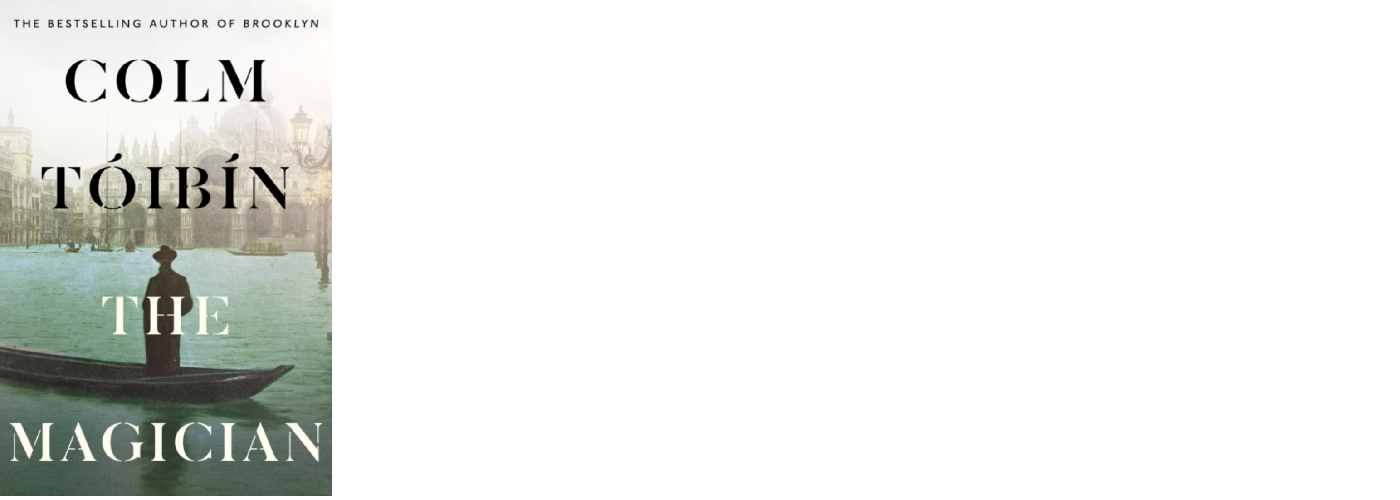Book of the week: Black Gold by Jeremy Paxman
Paxman’s history of coal is told with ‘characteristic panache’

A free daily email with the biggest news stories of the day – and the best features from TheWeek.com
You are now subscribed
Your newsletter sign-up was successful
The German novelist Thomas Mann (1875-1955) led an overwhelmingly “sedentary existence”, said Lucy Hughes-Hallett in The Guardian: most of his adult life was either spent “behind a desk”, creating the works that brought him wealth and fame (such as Buddenbrooks and Death in Venice), or “going for sedate little postprandial walks with his wife”.
Yet from such unpromising material, Colm Tóibín has fashioned a “compelling fictionalised biography” – which exquisitely balances the “intimate and the momentous”.
This isn’t the first time Tóibín has portrayed a writer who subsumed his homosexual desires into his work, said Dwight Garner in The New York Times: in the Booker-shortlisted The Master (2004), he delved into the mind of Henry James. But while that book focused on a four-year period, here Tóibín “seeks to grasp the entirety of Mann’s life and times”.
The Week
Escape your echo chamber. Get the facts behind the news, plus analysis from multiple perspectives.

Sign up for The Week's Free Newsletters
From our morning news briefing to a weekly Good News Newsletter, get the best of The Week delivered directly to your inbox.
From our morning news briefing to a weekly Good News Newsletter, get the best of The Week delivered directly to your inbox.
He does so “over 18 date-stamped, place-tagged chapters”, which move from Lübeck in 1891 to Los Angeles in 1950, said Anthony Cummins in The Observer. As the novel progresses, two main themes emerge: Mann’s “hidden yearnings as a married father of six” (including his attraction towards his teenage son, Klaus), and the “problem of how to position himself amid the dawning horrors of Nazi Germany”. While individual scenes are subtle and moving, the enterprise as a whole is “somewhat confounding” – uncomfortably “stranded in a stylistic no man’s land between biography and fiction”.
I disagree, said John Self in The Times. Tóibín’s quiet, “unruffled” sentences are perfect for capturing Mann’s “struggling restraint”. No mere biography, this is a captivating “work of art” – and probably the finest novel Tóibín has written.
Viking 448pp £18.99; The Week Bookshop £14.99

The Week Bookshop
A free daily email with the biggest news stories of the day – and the best features from TheWeek.com
To order this title or any other book in print, visit theweekbookshop.co.uk, or speak to a bookseller on 020-3176 3835. Opening times: Monday to Saturday 9am-5.30pm and Sunday 10am-4pm.
-
 The ‘ravenous’ demand for Cornish minerals
The ‘ravenous’ demand for Cornish mineralsUnder the Radar Growing need for critical minerals to power tech has intensified ‘appetite’ for lithium, which could be a ‘huge boon’ for local economy
-
 Why are election experts taking Trump’s midterm threats seriously?
Why are election experts taking Trump’s midterm threats seriously?IN THE SPOTLIGHT As the president muses about polling place deployments and a centralized electoral system aimed at one-party control, lawmakers are taking this administration at its word
-
 ‘Restaurateurs have become millionaires’
‘Restaurateurs have become millionaires’Instant Opinion Opinion, comment and editorials of the day
-
 Kia EV4: a ‘terrifically comfy’ electric car
Kia EV4: a ‘terrifically comfy’ electric carThe Week Recommends The family-friendly vehicle has ‘plush seats’ and generous space
-
 Bonfire of the Murdochs: an ‘utterly gripping’ book
Bonfire of the Murdochs: an ‘utterly gripping’ bookThe Week Recommends Gabriel Sherman examines Rupert Murdoch’s ‘war of succession’ over his media empire
-
 Gwen John: Strange Beauties – a ‘superb’ retrospective
Gwen John: Strange Beauties – a ‘superb’ retrospectiveThe Week Recommends ‘Daunting’ show at the National Museum Cardiff plunges viewers into the Welsh artist’s ‘spiritual, austere existence’
-
 Bad Bunny’s Super Bowl: A win for unity
Bad Bunny’s Super Bowl: A win for unityFeature The global superstar's halftime show was a celebration for everyone to enjoy
-
 Book reviews: ‘Bonfire of the Murdochs’ and ‘The Typewriter and the Guillotine’
Book reviews: ‘Bonfire of the Murdochs’ and ‘The Typewriter and the Guillotine’Feature New insights into the Murdoch family’s turmoil and a renowned journalist’s time in pre-World War II Paris
-
 6 exquisite homes with vast acreage
6 exquisite homes with vast acreageFeature Featuring an off-the-grid contemporary home in New Mexico and lakefront farmhouse in Massachusetts
-
 Film reviews: ‘Wuthering Heights,’ ‘Good Luck, Have Fun, Don’t Die,’ and ‘Sirat’
Film reviews: ‘Wuthering Heights,’ ‘Good Luck, Have Fun, Don’t Die,’ and ‘Sirat’Feature An inconvenient love torments a would-be couple, a gonzo time traveler seeks to save humanity from AI, and a father’s desperate search goes deeply sideways
-
 A thrilling foodie city in northern Japan
A thrilling foodie city in northern JapanThe Week Recommends The food scene here is ‘unspoilt’ and ‘fun’